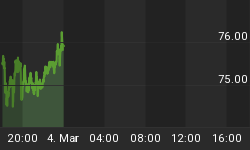Recent decades have witnessed an amazing shrinkage of the American manufacturing sector, from #1 in the world to virtual non-existence. Companies, taking advantage of cheaper labor costs abroad, have either outsourced some portion of the workforce or relocated their entire operations offshore. Remember the "great sucking sound" that Ross Perot claimed he could hear?
Well, today, if you listen, there's a different, almost opposite sound in the air. Instead of American jobs going to lower-paid foreign workers, foreign workers are leaving America for better jobs. It's happening, increasingly, among professionals who expatriated to the U.S. in search of the good life and have begun seeing better prospects back in their countries of origin.
In a worldwide survey by HSBC Bank International, conducted among 3,100 expats in the first quarter of 2009, more than 1 in 5 (22%) working and living in the U.S. said they were considering pulling up stakes and returning home. That's 50% higher than the overall average of expats everywhere.
This may seem strange to residents of the traditional land of opportunity. We're much more accustomed to foreign graduates of American colleges doing whatever it takes to get that green card. But it's in keeping with numbers noted by other observers.
And it's all about the career prospects.
Those studying the trend say that foreign professionals are becoming frustrated with their lack of advancement in the U.S., citing widespread salary and promotion freezes, not to mention layoffs. As our unemployment rate has ballooned to an "official" 10% and everyone is downsizing, people with advanced degrees have not been spared. Competition for the best jobs is more intense than ever, and switching employers no longer results in an automatic step up the ladder.
In addition, employees holding H-1B skilled worker visas often get the short end of the stick from employers. No one with a hard-to-obtain H-1B is going to complain about unfair treatment - or so the thinking goes - because termination most often results in a quick plane ride back home.
But that may not be much of a sword to hold over someone's head as home begins to look more and more attractive. People who came here from India and China, even as recently as a decade ago, are well aware of the explosion in opportunity that's transpired way back east. As a consequence of all this, Harvard researcher Vivek Wadhwa predicts, more than 100,000 expats will repatriate to India in the next five years. He cites reports from human-resource directors in India and China, showing a recent tenfold increase in the number of résumés from the U.S.
And why shouldn't they be thinking of packing it in? Among the 26 countries included in the HSBC study, America ranked a dismal 17th overall, based on four criteria: annual income, disposable income, ability to save, and ownership of luxury items.
Heading the list of negatives here is that wages have not kept pace with the domestic cost of living (a discrepancy American citizens also are painfully aware of). Just 39% of expats report being able to save more money since moving to the U.S.
That's despite concerted cost-cutting, too. When asked if the credit crunch had changed their attitude toward spending, 74% of those living here answered yes. Two-thirds say they have both cut down on luxuries and been trying to save on day-to-day costs.
Okay, but what if the shoe is on the other foot? What if you're a displaced professional worker, should you consider looking for a job out of country? Maybe. Though it will certainly be more difficult for an American to land a position abroad than for a repatriated citizen, it isn't impossible.
The HSBC study wasn't just about the U.S. Expatriates were working in all 26 countries surveyed, and many, of whatever nationality, are doing much better than those here.
Consider this: The highest proportion of expats earning more than the equivalent of US$250,000 per year (30%) is to be found in Russia. Of all places. Hard to imagine but true. Russia is followed in this category by some locales you might expect to see on the list, Hong Kong (27%), Japan (26%), and Switzerland (25%). But tied for fourth is another surprise, India.
Highest percentages of those who say they're saving more than they could at home were working in Saudi Arabia (90%), Russia (97%), and Qatar (98%).
Given those salary and savings-rate data, it's no surprise that the number one overall ranking for expats went to Russia. All the rest of the top eleven were located in the Middle and Far East. In order: Qatar, Saudi Arabia, Hong Kong, the UAE, Singapore, Japan, Bahrain, India, Malaysia, and China.
Where do you not want to go? Mostly, just avoid the EU. The bottom five: Belgium, Germany, Australia, Spain, and France.
Look at the top ten and bottom five again. This topsy-turvy world is not the one we're used to, not the one most Americans still think it is. Opportunity is where you find it, and world citizens willing to cross borders for work are, with good reason, setting sail for nations other than the U.S.
If you, like an increasing number of Americans, feel that these days life, liberty, and the pursuit of happiness may be easier to come by outside of the U.S., the American Expatriation Guide - written from personal experience - is a must-read. Completely FREE of charge, this 29-page in-depth manual for expats tells you everything you need to know when considering to move abroad. Click here to download it now.















